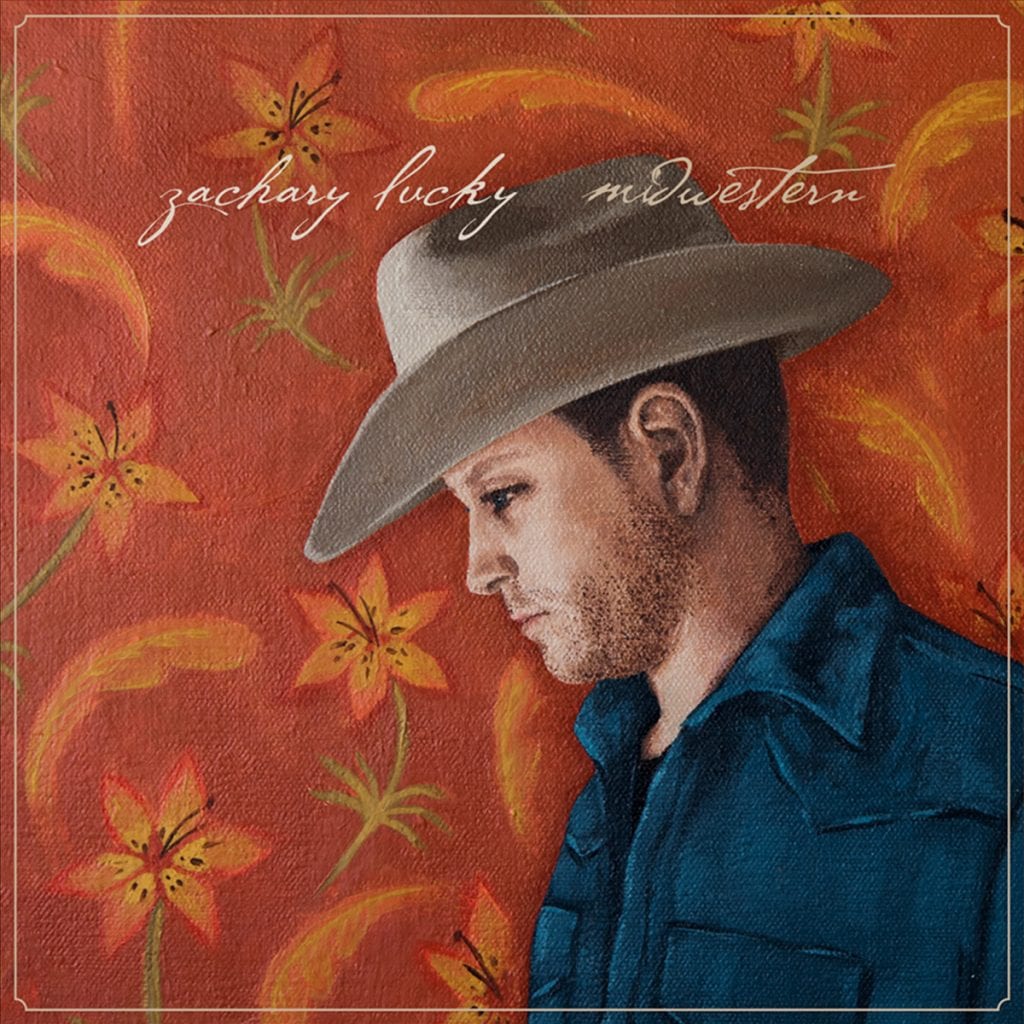Zachary Lucky’s Quietly Gripping ‘Midwestern’ Ponders Youthful Escapes and Adult Realities

The freedom of youth and the obligations of adulthood collide to gripping effect on Midwestern, Zachary Lucky’s compelling meditation on the ways time can change a life. Seeking to reconcile callow immaturity and grown-up responsibility, the Saskatchewan-reared troubadour avoids reassuring bromides, offering a compelling portrayal of a man doing his best to make sense of it all as he confronts his own flaws.
As seen in previous covers of Guy Clark and Townes Van Zandt, Lucky occupies the dusty spot where country and folk overlap; his voice has an appealing huskiness befitting the bittersweet nostalgia that infuses Midwestern. Understated to a fault, Lucky almost seems stoic, until you notice the quiet tension humming under the surface of his comfortable melodies.
The gentle “There Was a Time I Used to Run,” recalling cross-country drives and short-term relationships, finds him admitting, “Didn’t know what I was looking for — didn’t know that it was you.” Similar sentiments, such as “Always thought I would die alone,” recur throughout the album, suggesting he can’t believe his restless past led to a settled present.
On the loping “Didn’t Know That You’d Come Along” Lucky croons, “Now I work like my daddy five days a week / But it’s never enough with three mouths to feed,” which hardly sounds contented, though he quickly adds, “I’m sweeping up the kitchen feeling right as rain / Not a hell of a lot I would change.” Ambivalence also colors the toe-tapping tale of the “Rock and Roll Dad,” who loved the road and “could have made it big” — or so he insists, anyway — but now works a day job and drives a minivan. Is his character happy in this less-exciting world, or just resigned? Lucky doesn’t pretend to know, concluding, “You can call it giving in / Or you can call it fate / Life will give you what you need.”
While he’s joined by an excellent supporting cast, including Ivan Rosenberg (Dobro), John Showman (fiddle), and Kevin Neal (steel), it’s no reflection on the players to say that Midwestern might be equally effective if it were just Lucky and his acoustic guitar, such is the power of his introspective songs. Still, close listening reveals subtle strokes of brilliance by the band, among them the eerie backdrop of the bleak “Moments of Time” and the delicate fills on “Revelation Blues.”
“Moments of Time” underscores the existential gloom that’s never far away, with Lucky lamenting how memories fade and picturing his own death, asking, “Will it all fade to dusk slow or fast?” That’s a lot to ponder for someone who’s barely completed three decades on Earth. Hopefully, all this brooding will lead to genuine peace of mind. In the meantime, Midwestern is a stirring portrait of a soul in turmoil.



